Translating Dairy Lingo
- Snowville Creamery
- Sep 5, 2024
- 5 min read

When you brows the milk aisle, you might notice lots of labels and terms. Reading articles online or visiting websites, you might encounter even more. It's easy to get the jargon all mixed up. Sometimes things don't always mean what we think, either. So, let's dive into some terms you might hear when dealing with dairy and what they mean!
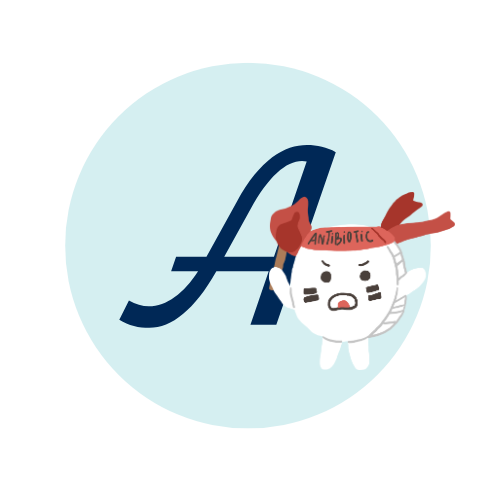
Antibiotics - Medication that kills or slows the growth of harmful bacteria. Farmers that choose to treat their cows with antibiotics set aside all milk from a cow treated with them and do not use it in milk production. The dairy plant tests for antibiotics each time to ensure there is none in the milk.
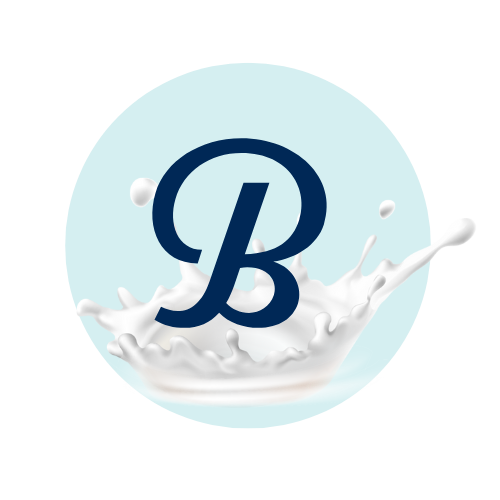
Beta-Casein - A type of casein protein that comprises about 1/3 of the total casein. There are two types: A1 and A2. (Read the science and benefits of A2/A2 Beta Casein here!)
Butterfat - The fatty part of milk. Cream and milk are sold by the percentage of butterfat in the product. The federal government regulates this in the United States.
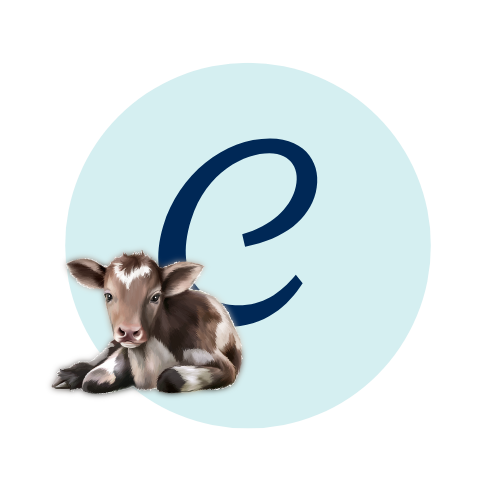
Casein - The dominant protein in cows' milk. (Learn more about protein in milk here!)
Colostrum - In the first 24 hours of a calf's life, dairy farmers give this first milk to the calves. It contains immunity elements along with fat and protein that are necessary for the newborn.
Conjugated Linoleic Acid (CLA) - A healthy fatty acid that has been shown to help prevent diabetes, heart disease, and some cancers. Grass-fed milk has higher amounts of CLA than milk from grain-fed cows.
Cream - High fat portion of milk that is separated during processing. It's used for making things like half & half, whipping cream, and ice cream mix.
Creme Fraiche - A rich, cultured sour cream. Unlike sour cream that curdles when cooked, creme fraiche is great for baking. (Learn more about Creme Fraiche and how it differs from sour cream here!)
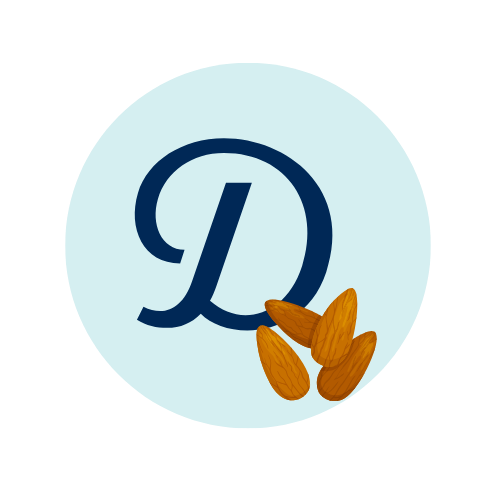
Dairy-Free Milk - A misnomer, this "milk" is actually ultra-processed plant beverages that attempt to simulate real dairy milk with a variety of additives and thickeners. (Learn more about the differences between plant beverages and real milk here!)
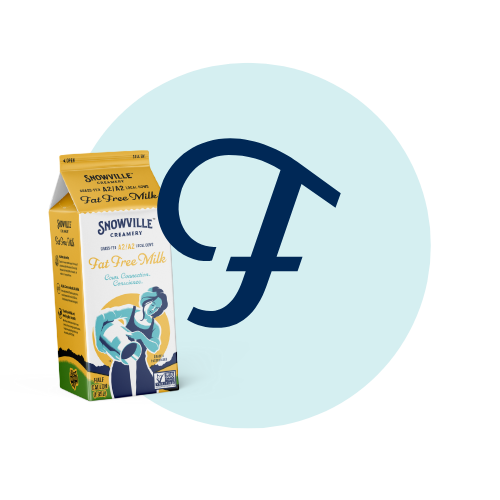
Fat Free Milk - Milk that has had the cream skimmed out of it. The amount of fat free produced correlates to the amount of cream available.
Flavored Milks - Milks that have had flavoring added. This does not take away from the nutritional value of the milk, though some may have many additives. Snowville Creamery's Chocolate Milk uses an in-house recipe (rather than the standard mix many use) that has simple ingredients.
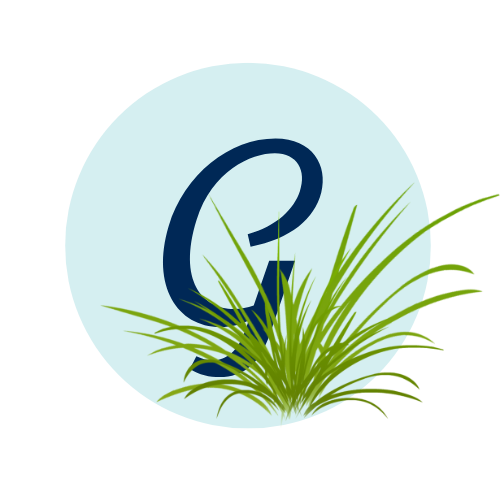
Genetically Modified Organism (GMO) - The process of altering genes to select for desired traits from other plants or organisms. Fluid milk and cows are not genetically modified, however some farmers may feed them GMO feed. Snowville Creamery's farmers do not use GMO feed, so we are certified Non-GMO.
Grade A Milk - Milk produced and processed under the strictest sanitary regulations, inspected and approved by public health authorities. This is milk intended for consumption in fluid form.
Grade B Milk - Milk produced and processed for manufactured products only.
Grass-Fed - This means the cows are fed a primarily grass-based diet. Milk from grass-fed cows has a higher concentration of conjugated linoleic acid (CLA). (See entry for Conjugated Linoleic Acid)
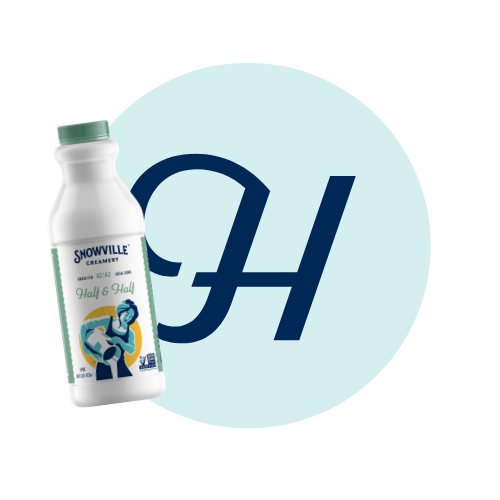
Half & Half - Mixture of whole milk and half cream.
High Temperature Short Time (HTST) Pasteurization - A type of pasteurization method that Snowville Creamery uses. It uses a lower legal temperature of 170°F for 18 seconds to preserve the texture and flavor of the milk with no need for additives.
Homogenization - A process that breaks up fat globules to create a smooth consistency. Snowville Creamery's milk is non-homogenized, allowing the cream to ridse to the top.
Hormone-Free Milk - Commonly known as rBGH and rBST, these genetically engineered hormones help produce more milk but may cause health issues for the animals. This is falling away from standard practice, but some milks may still highlight that their milk is hormone-free. Snowville Creamery's milk is free from hormones, for example.
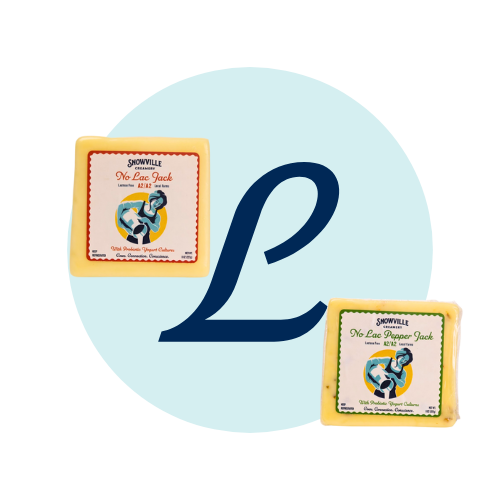
Lactose - The naturally occurring sugar in milk. Some people have digestive sensitivity to lactose, though other things, such as the beta casein, can cause similar side-effects.
Lactose-Free - Dairy products that have had the lactose removed. Snowville Creamery's No Lac Jack and No Lac Pepper Jack, for example, are lactose free thanks to the probiotics in the cheese, which consume the sugars.
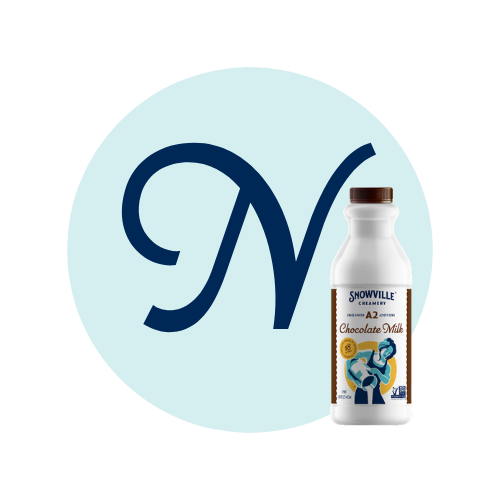
Nanofiltration - A process that is widely used in the dairy industry for lactose concentration and demineralization. Snowville Creamery uses it to increase the protein and sweetness of chocolate milk and yogurts without adding thickeners and other ingredients.
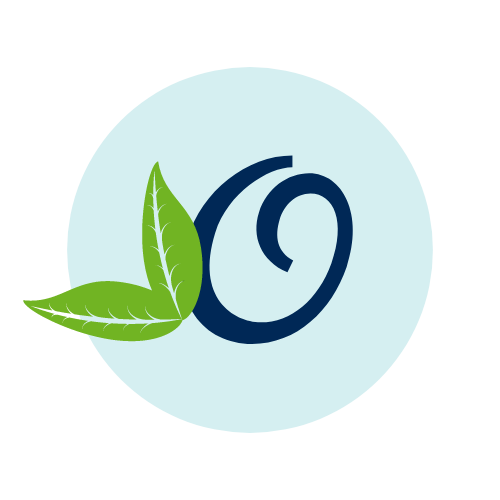
Organic Milk - Milk that has gone through the steps to receive a USDA Organic Seal. This doesn't necessarily mean higher quality milk, however.
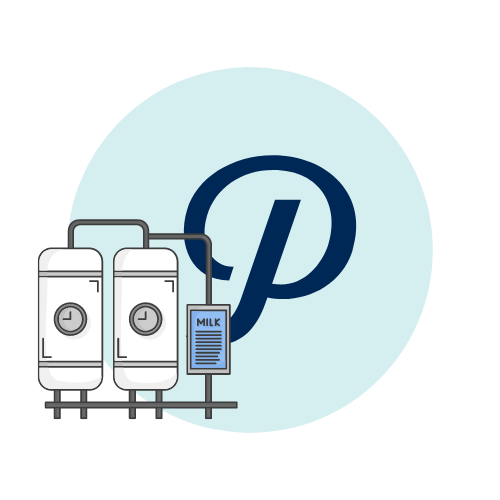
Pasteurization - The process of heating milk to kill harmful pathogens. This is legally required in the State of Ohio. There are several forms of pasteurization. The common commercial process is Ultra High Temperature, whereas Snowville Creamery uses High Temperature Short Time.
Probiotics - Substances that stimulate the growth of microorganisms, especially those with beneficial properties (like intestinal flora.) (Read about the pros of probiotics here!)
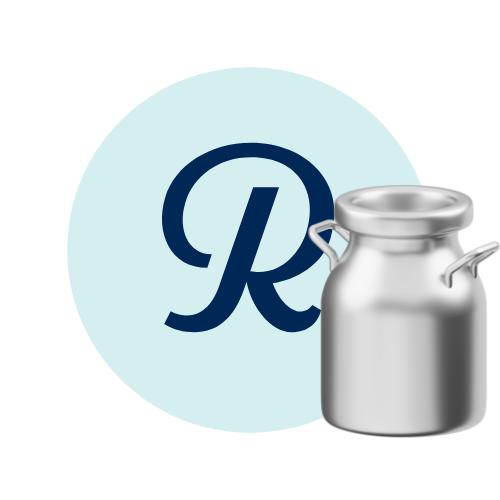
Raw Milk - Milk that has not been pasteurized and therefore may contain harmful pathogens. It is illegal in the state of Ohio to sell raw milk.
Reduced Fat Milk - Also called 2% Milk. Milk fat is 2% of the total weight of milk.
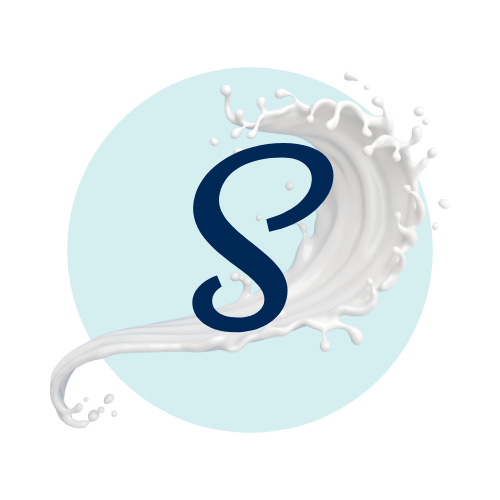
Skim Milk - Also called Fat Free Milk. Milk that has had the cream skimmed from it.
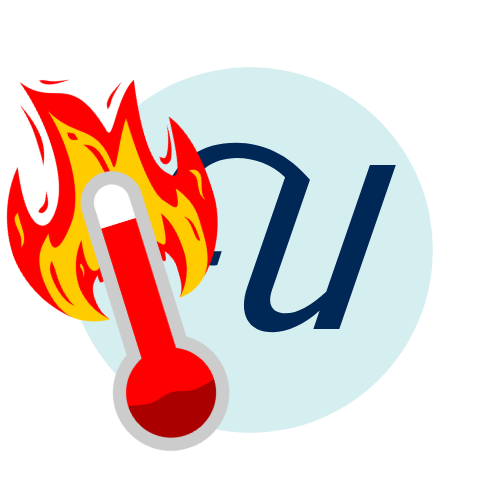
Ultra High Temperature (UHT) Pasteurization - A type of pasteurization method used by most commodity milk producers. It heats the milk to 280°F for two seconds, which alters the flavor and consistency of the milk. Many companies add additives like carrageenan to bring the creamy texture back. It also alters the nutritional value of the milk.
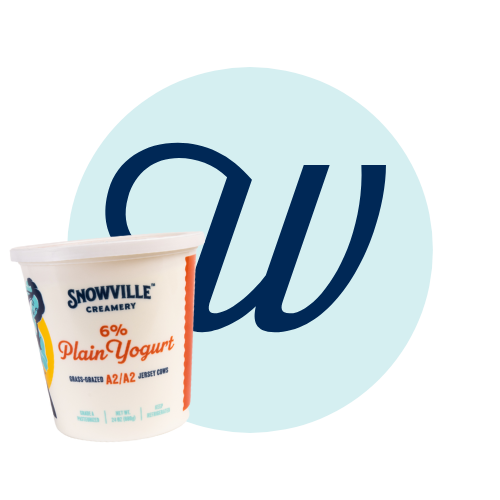
Whey - The watery part of milk. Often seen at the top of yogurt or during cheese-making. It's rich in lactose, minerals, vitamins, and protein.
White Milks - A term sometimes used for all non-flavored milks such as skim, 2%, whole, etc.
Whole Milk - Milk that is approximately 3.25% milk fat by weight.
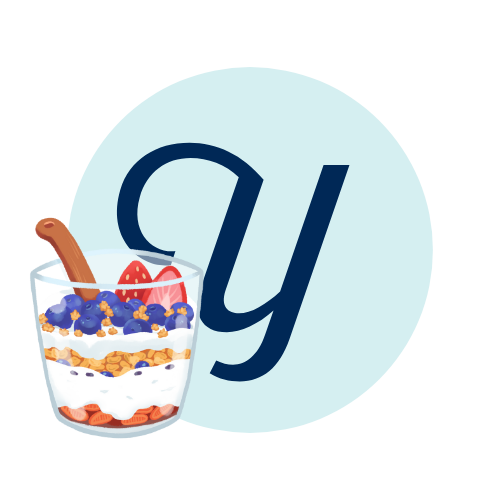
Yogurt - A dairy product made by fermenting milk with specific cultures. Depending on how it is made, those cultures may or may not be preserved as live in the end product. Snowville Creamery's yogurt ensures the cultures are preserved and not cooked out.
Yogurt Cheese - Cheese made with yogurt cultures. The cultures in Snowville Creamery's No Lac Jack and No Lac Pepper Jack Yogurt Cheeses consumes the sugars in the milk (lactose) and is therefore lactose free. This does not affect the texture or melting of the cheese.
The Wrap Up
The dairy industry, like anything, is always looking for new innovations. This means there are always new things and new terms coming about. It's further complicated by jargon used by the industry and trends. But hopefully now you'll feel armed to know what some of those enigmatic labels mean!
